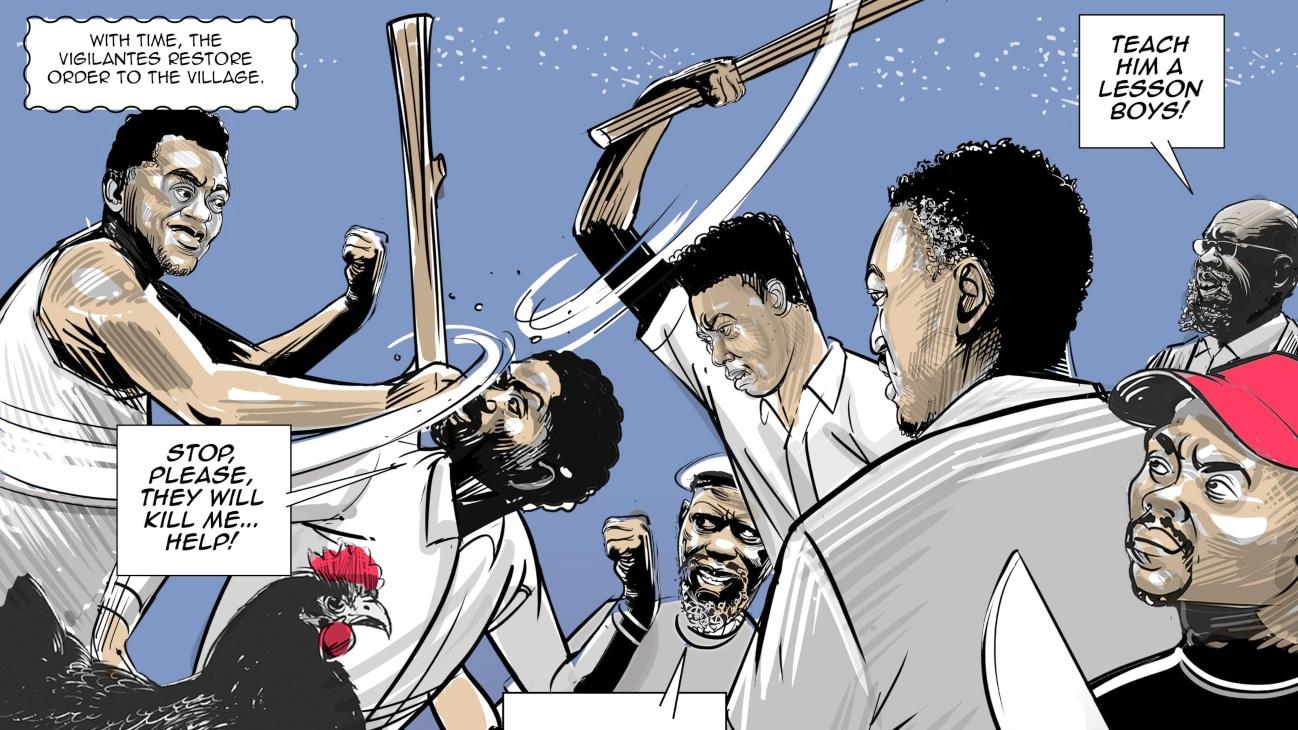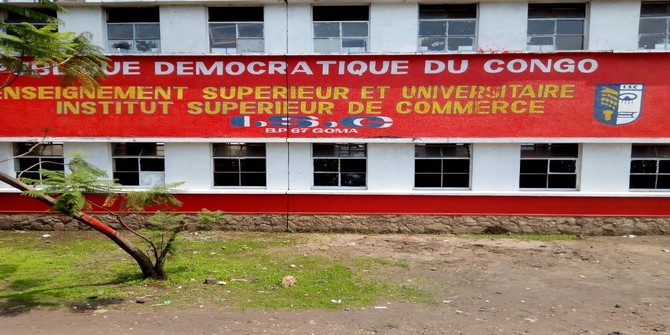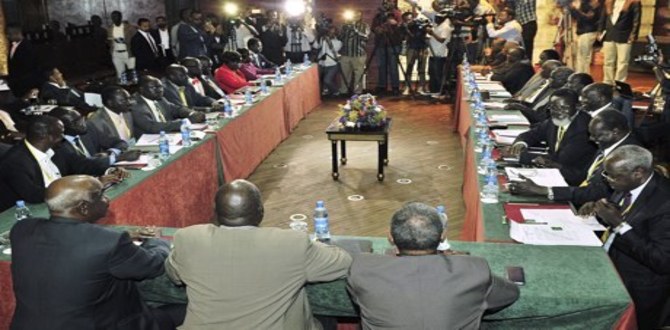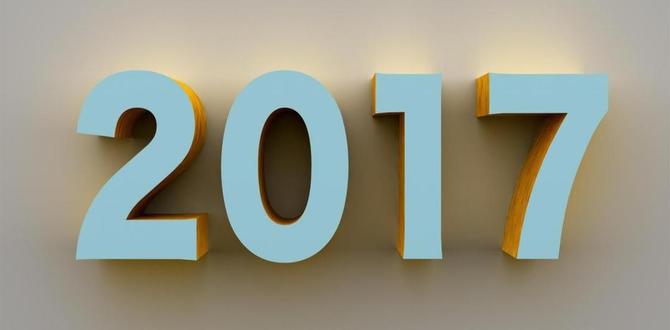After his recent victory, Senegal’s re-elected president has shown a willingness to open a new chapter. But in order to transform the country for the better, argues Elimane Kane, the country needs more than a new president or fairer elections. The population needs a new consciousness.

Senegal has just emerged from its eleventh presidential elections. The vote, held on 24 February, concluded with a proclamation of victory for the incumbent, Macky Sall, who will duly take up his second term in office. It was a bitterly disputed contest among the five official candidates approved by the Constitutional Council, via a sponsorship system-based selection process that shrank a pool of some 30 candidates to the final five.
It was a process that worked in favour of the incumbent from the start. One might even suspect that there had been manoeuvring involved, in which significant help from a powerful electoral-engineering task force served to ensure Sall’s clear victory – with 58% of ballots cast – on polling day. Throughout the contest, Sall deployed his powerful status as head of state, given to him by a hyper-presidential regime, in his own favour.
Sall has past form in winning elections; not only his own but others’. During his time as Senegal’s prime minister (2004 to 2007), he was director of Abdoulaye Wade’s 2007 presidential campaign, and managed to secure Wade’s re-election despite the latter languishing at the bottom of the popularity polls.
Sall’s second presidential victory last month was another masterstroke, in spite of an urban electorate that was harshly critical of his political choices, investment projects and attitude towards the principles of the rule of law and fair governance. There were frustrations about how some potential candidates were pushed aside, as with Khalifa Sall, the ex-mayor of Dakar, and Karim Wade, son of the former president whose Senegalese Democratic Party machine would have seriously threatened Sall’s chances of re-election.
But with the help of state power and extensive financial resources, Sall spent the whole campaign period ahead of his four rivals, who would have always struggled to beat him in a context where the entire electoral process appeared tailor-made for the incumbent’s advantage.
In just one example of the way the electoral system afforded opportunities to Sall to maximise his chances to win, the national electoral census – carried out via the CEDEAO biometric identity card system linked to voters’ polling cards – remained open until election day, when additional polling stations were opened by decree to allow ’lost’ voters to cast their ballots. This makes it easier to understand Sall’s air of firm determination and assurance in his many declarations throughout the campaign.
But the question is, who helped Sall win the presidential election hands down, without anyone raising any objections? Some observers have spoken of the guarantees that foreign allies may have given him. I am convinced that Senegalese democracy has, once again, fallen victim to the capture of power by financial lobbies that joined forces with Sall to help him secure a clear victory.
It is clear that there was heavy artillery operating behind the scenes to manipulate the process in his favour. What favours does he owe these parties in return? And at what price? Where is the patriotism in all of this? Will Sall have a free hand to govern Senegal in the sole interests of the Senegalese people?
Power, pawns and machines: the triumph of liberal ‘democracy’
February’s election result will not have come as a surprise to those who see elections as part of the process whereby the capture of power is given the semblance of legitimacy. Voters go to the ballot box believing that they are freely choosing a president, unaware of the behind-the-scenes machinery whose levers shape their decisions: the elimination of certain candidates with political power, the mediatisation that makes some candidates more visible than others, the manipulation of electoral rolls and the electoral map, the corruption of elected officials, the scientific stuffing of ballot boxes in zones that the opposition is unable to monitor. All these variables play a role in the final result, and once again prove that elections are the worst of democratic methods, giving a semblance of power to citizens who are ultimately merely pawns on the game masters’ chess board.
One of the most powerful instruments of liberal democracy, elections underscore the extent to which this system is arguably the enemy of true democracy in which political choices are genuinely dictated by people’s true aspirations.
Nevertheless, voters in Senegal’s latest presidential election gave the impression of being overwhelmingly in favour of sticking with the existing liberal democratic system. Three liberal candidates with decades of experience as political actors – Macky Sall, Idrissa Seck and Madické Niang, all from the Senegalese Democratic Party – captured more than 80% of the votes cast.
Ousmane Sonko: a breach in the system and a figure of hope
This wasn’t, however, the whole story. In this election, Ousmane Sonko, president of the political party PASTEF-Les Patriotes (Patriots of Senegal for Ethics, Work and Fraternity) was not only the youngest challenger but a genuinely ’disruptive’ candidate who captured the resistance vote, drawing support from those hoping for a definitive break with Senegal’s current strategic and political practices. His speeches, imbued with patriotism and calls for sovereignty, were attractive to the burgeoning group of Senegalese citizens becoming aware of the role played by geostrategic issues and the powerful actors in a ’globalised economy’ that serves to keep so much of the country’s population in a state of poverty and precarity.
Sonko succeeded in building an alliance with the intellectual and political circles arguing for the ‘Refoundation of the Republic’, the anti-imperialist activist groups and young people dreaming of a brighter future despite ongoing uncertainty over jobs and the chance for decent social and cultural lives. And above all Sonko connected with the Senegalese diaspora in the West, who are keenly aware of the complexity of the crises in Western countries and who still hope for a homeland worth returning to.
The political trajectory of Sonko, who was suspended from the Civil Service for whistleblowing, is built on the courage of his convictions and in particular his battle against bad governance. He positioned himself as a critic of the system who chooses to operate outside the politicians’ club. The real interest in his candidacy lies in its test of the extent to which the discourse about rupture, and the establishment of sovereign alternatives, can be achieved through the mechanism of representative democracy.
In addition to the emotion-led votes that he drew from his heartland in the south of Senegal, Sonko’s very respectable score in several other parts of the country brought him 16% of the national vote overall, according to official figures, which allows one to hope that his disruptive discourse will continue to grow through force of perseverance.
It remains to be seen whether his support is the first sign of a burgeoning critical mass, an expression of hope by young people seeking a better future, or both. However, it is clear that his future success will depend on his anti-system position itself, and on his capacity for leadership to challenge Senegalese politics. It will also depend on whether his challenge to the system has a snowball effect in Senegal’s intellectual circles and social movements.
Full-term thinking: Senegal in the next five years
In his declaration of victory, the newly re-elected president of the Republic adopted a posture of humility and the willingness to open a new chapter. In proclaiming that ‘there are neither winners nor losers’, Sall gave the impression that he preferred to take from this election glory, rather than triumphalism. He was also doubtless grateful to the Senegalese people who demonstrated their value to the political class by mobilising massively to vote and refusing to heed orders to sabotage the ballot and calls to resurrect other blocs’ candidates. It must also must be acknowledged that tyranny could be seen across all camps during this election, with the complicity of the elite, even in media and civil society circles.
If all sides agree to say mea culpa, perhaps we can forgive without forgetting to look ahead. And in the next five years, Senegal has two crucial major challenges to confront: the stability of the country and the governance of natural resources. In terms of security, the two are closely linked. Stability mostly correlates with the way the post-election transition will be handled between the winner and the losers, through the opening of a wide political dialogue on key issues.
According to Sall in his post-election continuity statement, the government will continue to exploit the country’s natural resources, especially its recently discovered oil and natural gas. However, official strategy positions the private sector at the heart of its resource policy. Senegal’s ability to benefit from mining extraction will depend on the nature of the contracts signed with multinational firms, but will above all depend on what measures the state is prepared to put in place to maximise the benefits to the Senegalese people from natural resource windfalls, while minimising negative impacts on the economy and the environment.
This issue closely links to stability due to the strategic and sensitive role played by natural resources around the world. Insiders in this field like to say that ‘oil does not like commotion’, and a quasi-correlation can be made between the countries rich in natural resources and those with totalitarian regimes or civilian crises. But the main risk ahead is the potential for popular disillusionment when, five years down the line, the results fail to live up to the expectations generated by the petroleum windfalls. Sall himself has given indications of being aware of the problem, and promised during his presidential campaign to renegotiate some of the natural resource contracts that had already been signed.
Turning anger into transformative change takes rigour, solidarity and insight
February’s election was a stage where many violent swings of emotion played out in public opinion. In the first weeks after the vote, it feels like the remains of a bonfire whose embers could rekindle at any time. However, our compatriots who struggle to accept Sall’s official victory will have to learn to turn their anger into a transformative force. They will need to be more rigorous in developing mobilising strategies based on knowledge and creativity and directed by responsible, courageous, wise leadership that only men and women of high ability and insight can take on.
The primary weakness of alternative movements is often the lack of organisation and genuine solidarity. It is also, and above all, egotism and the cult of personality. In working to wrest sovereignty from well-financed powers with electoral machinery and tools at their disposal, it is essential to address the issues of representation, and of how power is organised.
This presidential election has offered rich insights into the behaviour of various protagonists and of citizens. It has highlighted many of our flaws and weaknesses.
Senegal’s real challenge is not to remove a president merely to replace him with another from the same pool, while keeping the same executive power intact, but to build a new consciousness among the people of Senegal: the consciousness of freedom, and of sovereignty. From those changes, all the rest will flow.
Elimane Haby Kane is an Atlantic Fellow for Social and Economic Equity at the LSE’s International Inequalities Institute. An expert in governance, international development and project management. He was program officer, then executive director of Forum Civil, the Senegalese section of Transparency International. He is a founding member of the pan-African think-tank LEGS-Africa.
Post translated by Sandrine Victor.
The views expressed in this post are those of the author and in no way reflect those of the Africa at LSE blog, the Firoz Lalji Centre for Africa or the London School of Economics and Political Science.





